The diagram given below shows the internal structure of a spinal cord depicting a phenomenon. Study the diagram and answer the questions:
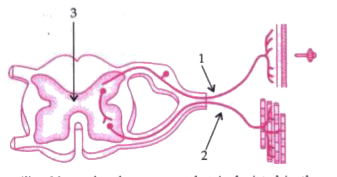
Name the phenomenon that is depicted in the diagram. Define the phenomenon.
1. Sensory neuron, 2. Motor neuron, 3. Gray matter.
Topper's Solved these Questions
Similar Questions
The diagram given below shows the internal structure of a spinal cord depicting a phenomenon. Study the diagram and answer the questions:
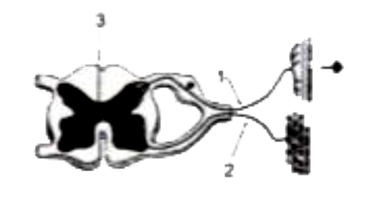
Name the parts numbered 1, 2 and 3.
View SolutionStudy the diagram below and answer the questions that follows :
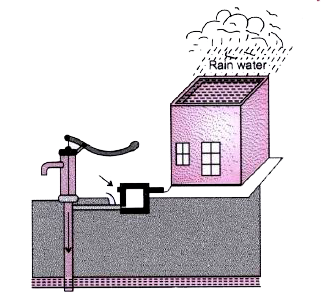
Name the activity shown in the diagram.
View SolutionStudy the diagram below and answer the questions that follows :
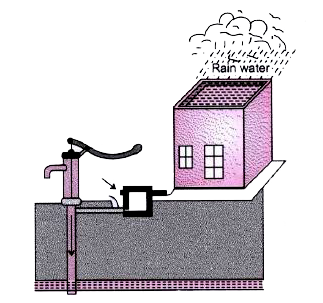
Name the activity shown in the diagram.
View SolutionAn outline sketch of a tree is shown in the diagram below. Study the same and answer the question that follow:
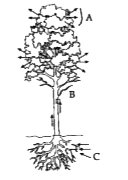
Name the phenomenon that is labelled A in the diagram.
View SolutionThe diagram given below shows the male urinogenital system of a human being. Study the diagram and answer the questions that follow :
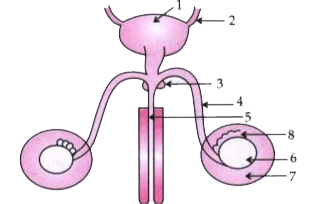
Label the parts numbered 1 to 8.
View SolutionThe diagram given below shows the male urinogenital system of a human being. Study the diagram and answer the questions that follow :
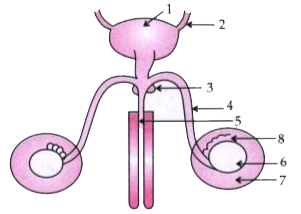
What is the role of part 7 ?
View SolutionThe diagram given below is a representation of a phenomenon pertaining to the nervous system. Study the diagram and answer the following questions:
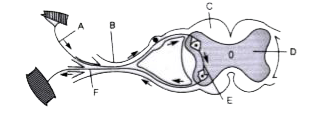
(i) Name the phenomenon that is being depicted.
(ii) Give the technical term for the point of contact between the two nerve cells.
(iii) Name the parts A, B, C and D.
(iv) Write the functions of parts E and F.
(v) How does the arrangement of neurons in the spinal cord differ from that of the brain.
View SolutionStudy the diagram given below and answer the questions that follow :
What is emulsification?
View SolutionStudy the diagrams given below and answer the questions tht follow:
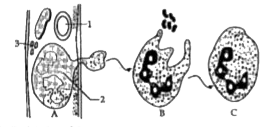
Identify the phenomenon occurring in A. Explain the phenomenon.
View SolutionThe diagram given below is that of a structure present in a human kidney. Study the same and answer the questions that follow:
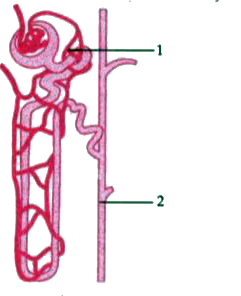
Name the structure represented in the diagram.
View Solution
